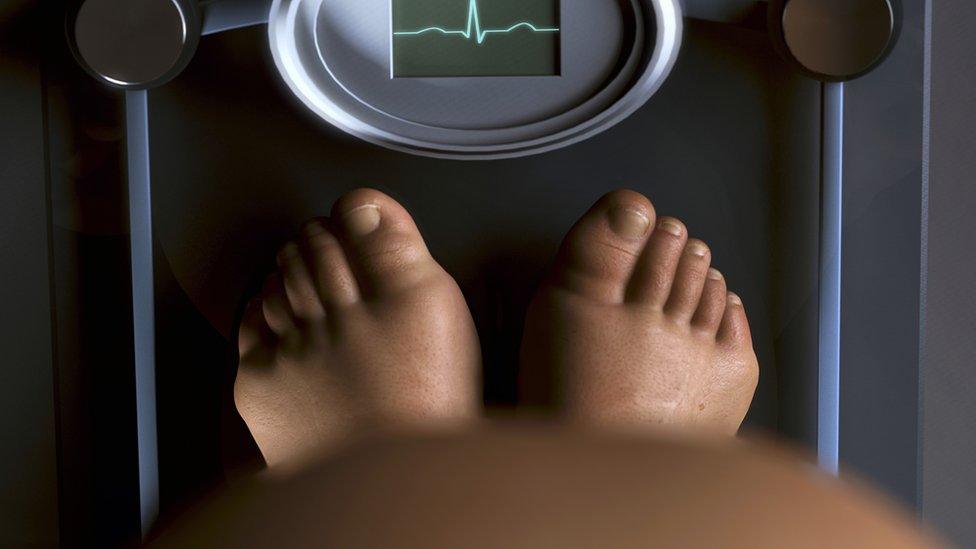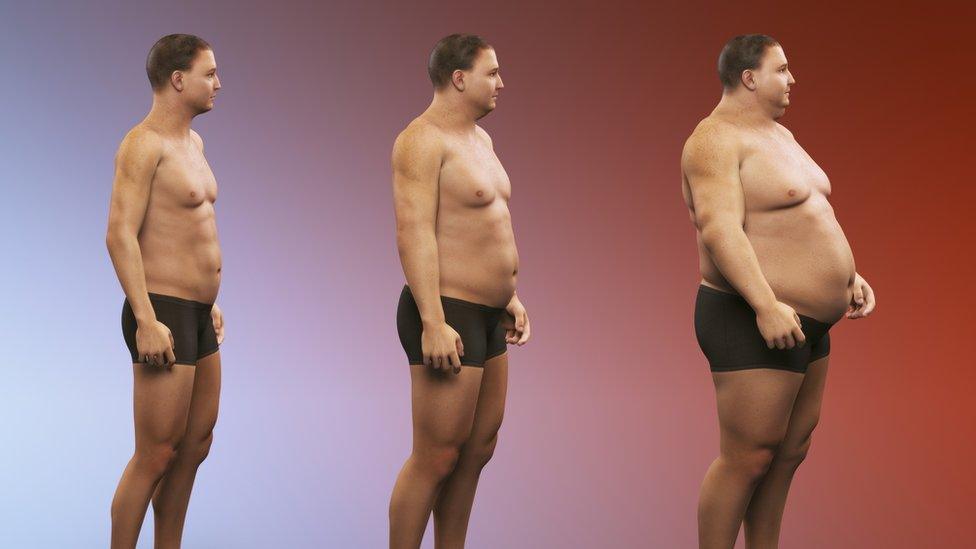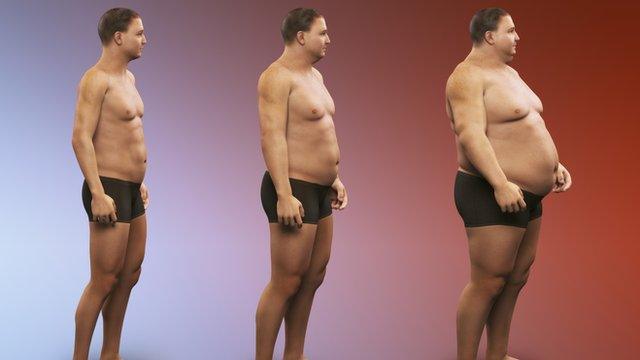Obesity 'linked to cancer rise'
- Published

Rising levels of obesity and unhealthy weights could be linked to 670,000 extra cases of cancer in the next 20 years, a UK report predicts.
If current trends continue, experts say, almost three in four adults could be overweight or obese by 2035, bringing a host of health issues.
The Cancer Research UK and UK Health Forum report says TV adverts for some food should be banned before 21:00.
Health officials say they are committed to tackling childhood obesity.
'Tipping the scales'
Recent studies suggest obesity is linked to several cancers - including oesophageal (gullet), womb, and bowel tumours.
And being overweight has long been associated with conditions such as diabetes and coronary heart disease.
In this study, researchers used a computer modelling system, together with historical and current health data, to predict the impact of obesity over the next 20 years.
Their work suggests a rise in the number of people who are overweight or obese would contribute to 4.6 million additional cases of type-2 diabetes and 1.6 million extra cases of heart disease by 2035.
And experts estimate this could lead to an additional £2.5bn in costs to the NHS for 2035 alone.
Sugar tax
The report recommends a number of ways to tackle this problem, including introducing a 20p per litre tax on sugary drinks and a review of how food is advertised online.
Experts behind the report say they have taken into account that increases in obesity have started to slow in the past few years.
But they also say one of the major challenges they faced was an inability to take major future changes - such as new drugs or technologies - into account.
Prof Susan Jebb, at the University of Oxford, said while interventions to curb obesity were welcome, the report overlooked the need to fund support for people who were already overweight.
She added: "Most people know that smoking causes cancer, but fortunately, most people in the UK now don't smoke. And for them, managing their weight is the single most important thing they can do to reduce their risk of cancer."
Department of Health officials said they had already brought in a ban on adverts featuring junk food during children's TV programmes and would be launching a childhood obesity strategy shortly.


Why is obesity linked to cancer?
There are a number of theories behind the link, including:
Fat tissue can produce an excess amount of certain hormones that may disrupt normal growth of cells
Obesity may lead to tissues becoming inflamed, which in turn may increase the risk of them becoming cancerous
Fat may disrupt the actions of proteins designed to keep a check on cell growth
Source: NHS Choices

- Published14 August 2014

- Published26 May 2015

- Published11 December 2015
